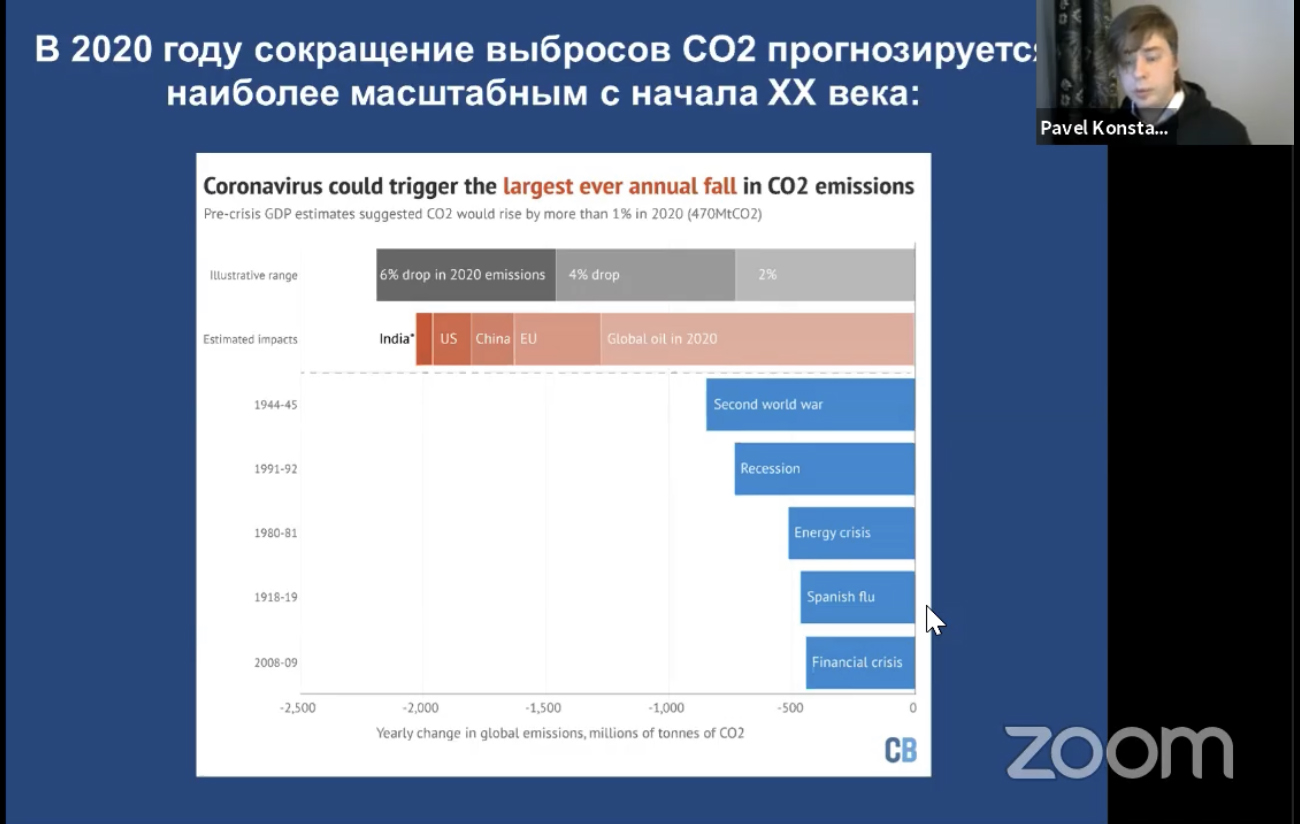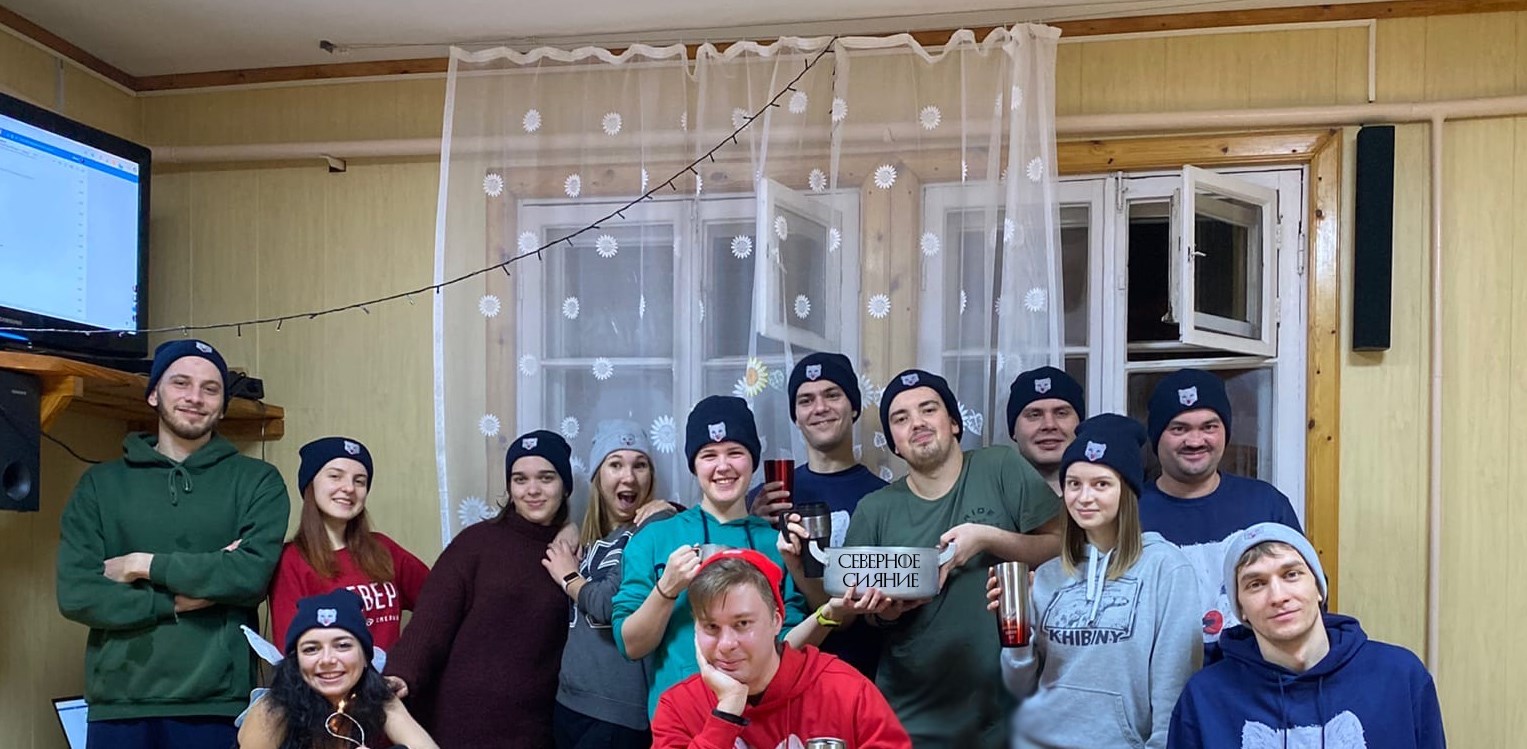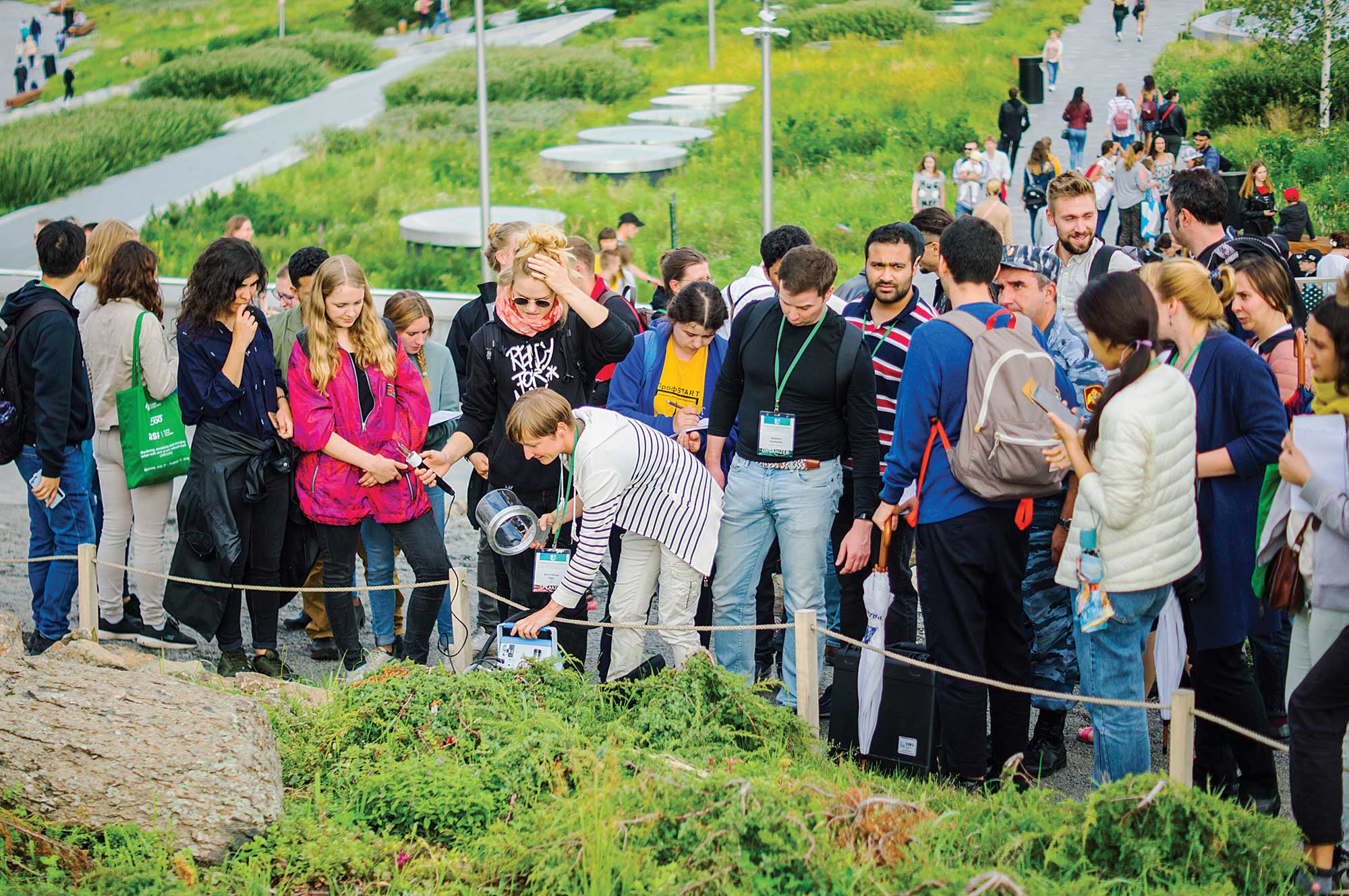April 17, 2020 a virtual meeting with Pavel Konstantinov, a climatologist, scientist at the Smart Urban Nature Laboratory (RUDN University), as well as the Executive Secretary of Russian Pan-Eurasian Experiment office (PEEX in Moscow State University) took place. The online lecture gathered about 700 viewers. In a conversation about climate, Pavel paid special attention to the current situation with coronavirus. And also shared a useful life hack how to determine the weather for tomorrow with an accuracy of 72% in two minutes.
The first Urban Climate Arctic Winter School in Russia trained young «climate guardians»
From January 28 to February 4, 2020, the first in Russia Urban Climate Arctic Winter School-2020 (UCAWS-2020) was held on the Kola Peninsula in the far northwest of Russia which lies almost completely inside the Arctic Circle. The school concerns the problems of urban climatology in high latitudes. The event was organized with the assistance of the PEEX program, the Laboratory of Smart Technologies for Sustainable City Development (RUDN University) and the Council of Young Scientists of the Faculty of Geography (Moscow State University). The winter school gathered undergraduates and graduate students of RUDN University and Moscow State University who are specializing in the field of urban meteorology.
Participants of the 3MUGIS RUDN Summer School studied the sights and soils of Russia
July 27 – August 10, 2019 the III field international summer school “Anthropogenic and natural landscapes and soils of European Russia: from sea to sea” took place in RUDN University. School was held jointly with scientific and educational institutions of Russia, Germany and the USA.
This year, 50 participants represented Russia, Germany, Italy, China, the USA, Chile and France. In two weeks, they crossed the entire European part of Russia from the Barents Sea to the Sea of Azov in order to study zonal diversity and evaluate the results of anthropogenic impact on the ecosystems.



